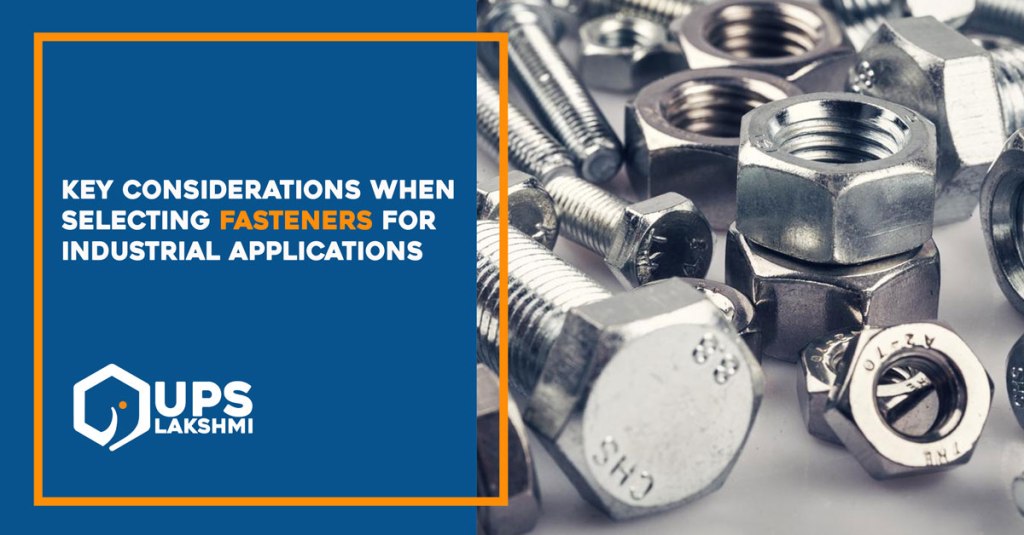
Fasteners play a crucial role in various industrial applications, securing components and structures to ensure their integrity and stability. With a wide range of fastener types available in the market, selecting the right one can be a challenging task. Making an informed decision is vital to prevent costly failures and optimize the overall performance of industrial projects. In this blog, we will delve into the key considerations that should be taken into account when choosing fasteners for industrial applications.
1. Material Selection:
One of the first considerations when selecting fasteners is the material they are made of. Different materials possess unique properties, making them suitable for specific applications. Common materials include stainless steel, carbon steel, alloy steel, and non-ferrous metals like aluminum and titanium. Factors such as corrosion resistance, tensile strength, and temperature resistance should be evaluated based on the environmental conditions and load requirements of the application.
2. Fastener Grade and Strength:
The grade and strength of the fastener are essential factors that impact its load-carrying capacity. The grade is typically denoted by numbers, such as 8.8, 10.9, or 12.9 for metric fasteners, indicating the material’s tensile strength. It is essential to select fasteners with adequate strength to withstand the applied loads and ensure the safety and longevity of the assembly.
3. Compatibility with the Joint:
Considering the type of joint is critical in fastener selection. Different joints, such as lap joints, butt joints, or threaded joints, require specific types of fasteners to provide optimal performance. For instance, in applications with high shear forces, rivets or welds might be more suitable than traditional screws or bolts.
4. Corrosion Resistance:
In industrial environments exposed to moisture, chemicals, or extreme temperatures, corrosion-resistant fasteners are a must. Choosing the right coating or material that can withstand the corrosive elements is essential for the longevity and reliability of the assembly. Common coatings include zinc plating, galvanization, and various organic coatings.
5. Environmental Conditions:
Understanding the environmental conditions in which the fasteners will operate is crucial. Factors such as temperature fluctuations, UV exposure, humidity, and atmospheric conditions can impact the material’s properties and performance. For instance, plastic or nylon fasteners might be more suitable in applications where electrical insulation is necessary.
6. Cost Considerations:
While selecting fasteners, striking a balance between quality and cost is essential. Opting for cheaper, lower-quality fasteners might save costs initially, but it can lead to frequent replacements and costly downtime in the long run. Investing in high-quality fasteners that meet the application’s requirements can significantly enhance the overall efficiency and reliability of the project.
7. Installation and Maintenance:
The ease of installation and maintenance should also be considered during fastener selection. Some fastener types, such as self-tapping screws, might simplify installation processes and reduce labor costs. Additionally, easy-to-maintain fasteners can save time and effort during routine maintenance tasks.
8. Compliance with Standards:
Adhering to industry standards and regulations is essential in ensuring the safety and quality of industrial applications. Choosing fasteners that comply with recognized standards, such as ASTM, ISO, or DIN, can provide peace of mind and guarantee the integrity of the assembly.
Selecting the right fasteners for industrial applications requires careful consideration of various factors, such as material selection, grade, joint compatibility, corrosion resistance, environmental conditions, cost, installation, and compliance with standards. Making an informed decision based on these considerations can significantly impact the performance, safety, and reliability of the assembly.Universal Precision Screws (UPS) is a leading high quality fastener manufacturer catering to diverse industrial applications. With decades of expertise in the field, UPS has earned a reputation for delivering precision-engineered screws that meet stringent quality standards. Their comprehensive range of fasteners, including screws, bolts, rivets, and more, are crafted from premium materials to ensure superior strength and durability. Committed to customer satisfaction, UPS provides tailored fastening solutions, catering to the unique requirements of each industrial project. Whether it’s automotive, aerospace, construction, or electronics, Universal Precision Screws is the go-to choice for reliable fasteners that stand the test of time. To know more, visit- https://www.upsind.com/